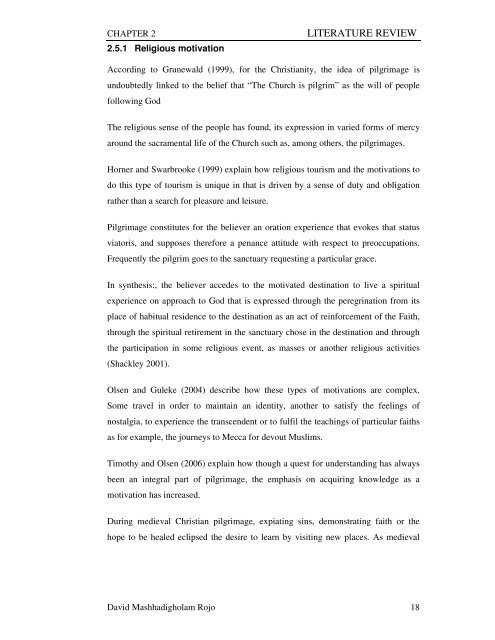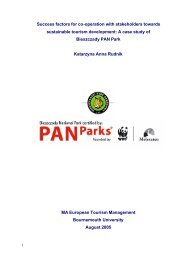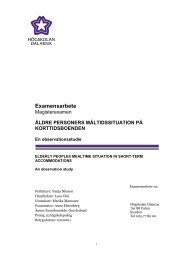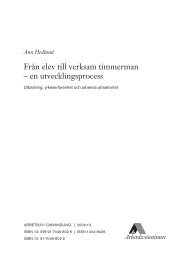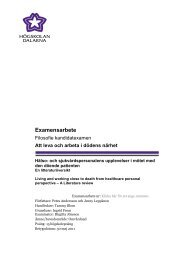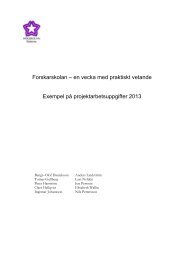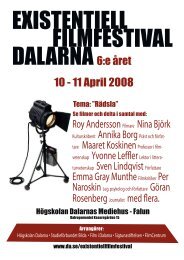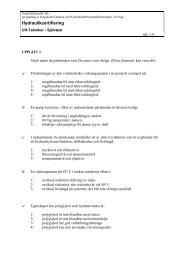Religious Tourism: The Way to Santiago
Religious Tourism: The Way to Santiago
Religious Tourism: The Way to Santiago
Create successful ePaper yourself
Turn your PDF publications into a flip-book with our unique Google optimized e-Paper software.
CHAPTER 2 LITERATURE REVIEW<br />
2.5.1 <strong>Religious</strong> motivation<br />
According <strong>to</strong> Grunewald (1999), for the Christianity, the idea of pilgrimage is<br />
undoubtedly linked <strong>to</strong> the belief that “<strong>The</strong> Church is pilgrim” as the will of people<br />
following God<br />
<strong>The</strong> religious sense of the people has found, its expression in varied forms of mercy<br />
around the sacramental life of the Church such as, among others, the pilgrimages.<br />
Horner and Swarbrooke (1999) explain how religious <strong>to</strong>urism and the motivations <strong>to</strong><br />
do this type of <strong>to</strong>urism is unique in that is driven by a sense of duty and obligation<br />
rather than a search for pleasure and leisure.<br />
Pilgrimage constitutes for the believer an oration experience that evokes that status<br />
via<strong>to</strong>ris, and supposes therefore a penance attitude with respect <strong>to</strong> preoccupations.<br />
Frequently the pilgrim goes <strong>to</strong> the sanctuary requesting a particular grace.<br />
In synthesis:, the believer accedes <strong>to</strong> the motivated destination <strong>to</strong> live a spiritual<br />
experience on approach <strong>to</strong> God that is expressed through the peregrination from its<br />
place of habitual residence <strong>to</strong> the destination as an act of reinforcement of the Faith,<br />
through the spiritual retirement in the sanctuary chose in the destination and through<br />
the participation in some religious event, as masses or another religious activities<br />
(Shackley 2001).<br />
Olsen and Guleke (2004) describe how these types of motivations are complex.<br />
Some travel in order <strong>to</strong> maintain an identity, another <strong>to</strong> satisfy the feelings of<br />
nostalgia, <strong>to</strong> experience the transcendent or <strong>to</strong> fulfil the teachings of particular faiths<br />
as for example, the journeys <strong>to</strong> Mecca for devout Muslims.<br />
Timothy and Olsen (2006) explain how though a quest for understanding has always<br />
been an integral part of pilgrimage, the emphasis on acquiring knowledge as a<br />
motivation has increased.<br />
During medieval Christian pilgrimage, expiating sins, demonstrating faith or the<br />
hope <strong>to</strong> be healed eclipsed the desire <strong>to</strong> learn by visiting new places. As medieval<br />
David Mashhadigholam Rojo 18


